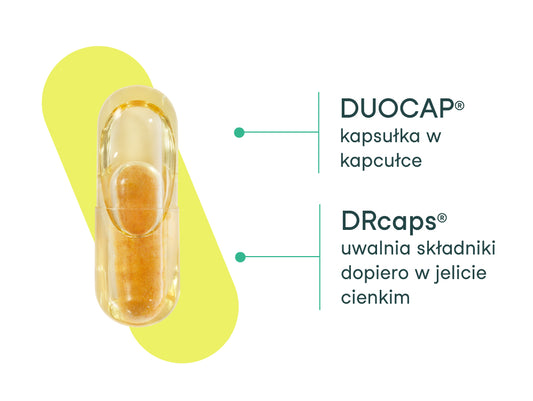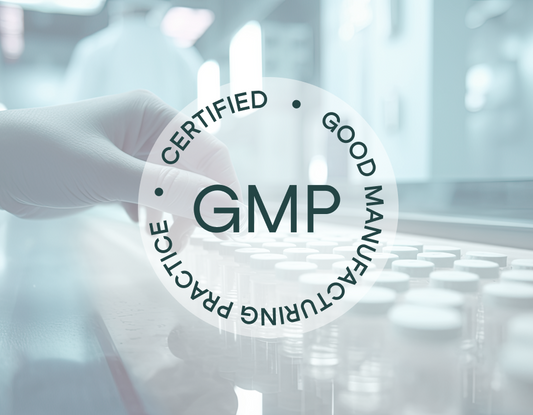
Assisting in getting pregnant does not always involve the intervention of specialists. There are many things you can do yourself to increase your chances of conception. We talk about, among others: about whether female orgasm matters and what connection night shift work has with pregnancy.
Every year, approximately 1.5 million couples in our country (i.e. approximately 20% of the population of reproductive age) face problems with getting pregnant, according to the Polish Society of Gynecologists and Obstetricians. 1 . Globally, this problem may affect 10 to 15% of people 2 . The good news is that not all of these cases require treatment in specialized centers. More and more experts and scientists around the world emphasize the impact of our lifestyle on how quickly we can become parents. The so-called “lifestyle factors” are important for our health and also support or hinder getting pregnant.
What makes getting pregnant easier?
As in any other case, we would like to have a "magic pill" that will fulfill our wishes in the blink of an eye. However, there is no short and clear answer to the question "What should I take to get pregnant?" What is certain, however, is that a woman's body (but also a man's) must be ready for this pregnancy, both physiologically and mentally. These spheres are closely related. Omnipresent stress leads to our body functioning constantly in "fight or flight" mode. 3 . Chronic stress draws energy and strength from all systems and systems in the body, gradually exhausting us at all levels. The brain perceives this situation as a threat and sends appropriate signals to other organs to operate in emergency mode, including the reproductive system. In such conditions, the body does not have the conditions for reproduction, and the chances of getting pregnant are reduced, which is confirmed by scientific research 4 . Therefore, dealing with stress should be number 1 on your pregnancy preparation checklist.
How to get pregnant as soon as possible – methods.
The thing a woman should do with pregnancy in mind is to become familiar with her body and its hormonal rhythms related to the menstrual cycle. It may sound trivial, but not all of us can sense our ovulation day and distinguish when one phase of the cycle ends and the next one begins. During ovulation, the egg moves from the ovary to the fallopian tube. It has 12 to 24 hours for fertilization. How to get pregnant faster with this knowledge? Have sex around ovulation. We don't necessarily have to hit the moment of ovulation because sperm can remain active in the vagina for up to 5 days. 5 . Scientists have also calculated that there is no need to have sex every day in the so-called a woman's fertile period. All we have to do is do it every other day. The percentage of pregnancies in both the first and second cases is similar (37% and 33%) 6 .
Mobile applications and support for getting pregnant.
In recent years, mobile applications have been gaining popularity, claiming to make it easier to get pregnant by monitoring a woman's fertility periods. However, after examining 600,000 women around the world, scientists concluded that the length of menstrual cycles and fertile days vary too much. 7 so that we can talk about an "average" result. An analysis of 50 such popular apps also showed that predictions made for a "hypothetical" woman are not accurate 8 .
Of course, we can also "measure" ovulation using special home tests or basal temperature, which should be checked every morning, before getting out of bed. It is true that women who use these methods for a long time point out that such "helpers" in getting pregnant often cause them mental discomfort and kill romance. Therefore, it is really worth spending time observing your body's signals (including vaginal mucus) to know when the "fertile window" opens. You can read more about the 4 phases of the menstrual cycle and what changes occur in a woman's body during each of them in a separate article .
What else can help you get pregnant?
Diet.
To bring a new person into the world, a woman's body must have appropriate resources. This means that it must be well nourished and saturated with essential micro- and macronutrients. The diet in preparation for pregnancy should be rich, among others: In:
- protein, which is the building material of all cells, including the fetus;
- polyunsaturated fatty acids , which have a beneficial effect on ovulation and the reproductive system;
- complex carbohydrates and plant products containing fiber, which is food for intestinal bacteria and has a beneficial effect on insulin metabolism. Insulin, in turn, affects fertility, and its proper level helps with ovulation.
You can read more about the diet in preparation for pregnancy in this article . And don't forget to stop using stimulants if you are planning to have a baby. Smoking and alcohol (not to mention drugs) can not only negatively impact fertility, but also cause illness and developmental problems in the baby if pregnancy does occur. 9 .
Dream.
Getting enough quality sleep also makes it easier to get pregnant. And although the connection may not be so obvious, there are many scientific studies that confirm the impact of a night's rest on the endocrine system. 7-8 hours of sleep daily promote the proper secretion of progesterone, estrogen and follicle maturation hormone in the ovaries (FSH) 10 . Melatonin, a hormone released during sleep, also has a protective effect on egg cells just before ovulation 11 . It has been proven that women who work night shifts and cannot sleep during this time have a greater risk of menstrual disorders, infertility and even miscarriage. 12 . If you have trouble sleeping, check here for tips on how to improve its quality.
Correct body weight.
Scientific research shows that obese people have a lower chance of getting pregnant. The same applies to people with very low body weight (underweight). How can you tell if your body weight falls into one of these categories? Based on BMI - body mass index. BMI is calculated by dividing your weight (in kilograms) by your height squared (in meters). There are also many online calculators that do this automatically. If your BMI is below 18.5 or above 30 - you have a lower chance of getting pregnant or a higher risk of obstetric problems and pregnancy diseases 13 . How to help obese people get pregnant? Research shows that losing even 5-10% of your weight in any way in the case of obese women increases their chances of having a child. 14.15 .
Movement.
Regular physical activity is also one of the pillars of caring for integral health. It helps balance the hormonal system, supports sugar metabolism and fights stress. All this has an impact on the reproductive system and fertility 16 .
However, if physical activity is too intense, your chances of getting pregnant will decrease 17 . So it's also not worth overdoing it. What kind of effort would be appropriate? Moderate exercise. At least 30 minutes of such physical activity daily is recommended. It doesn't have to be fitness. A brisk walk, gardening or dancing will be equally good. It's good if you do this at least once a week, e.g. running, fast cycling or fast swimming 18 . If you need some extra inspiration to start moving more, check out this article .
Does folic acid help get pregnant?
Another piece of advice that can be found on virtually every list for women planning a baby is to take folic acid. But does it actually help you get pregnant? Unfortunately no, his role is something completely different. Folic acid is essential for the development of the baby's neural tube. This is the structure of the fetus on the basis of which its nervous system is shaped. If the mother's body lacks folic acid in the right form and quantity, there is a risk of defects in the development of the tube and pregnancy complications. In other words, the baby may be terminally ill and the pregnancy may end in miscarriage.
The shaping of the neural tube takes place during the first weeks of pregnancy, when the woman is not aware of it yet. Therefore, it is important that there is a sufficient level of folic acid in her body at the time of fertilization. Therefore, all women of reproductive age are recommended to supplement folic acid, even if they are not trying to get pregnant. Such supplementation can reduce the risk of fetal neural tube defects by 70%. 19 .
The problem, however, is that not all folic acid contained in popular dietary supplements (including premium ones) can be absorbed. Up to 60% of people may have a genetic mutation that makes it difficult to absorb regular folic acid. This means that we can swallow tablets with acid that we will not be able to absorb, and additionally, we can even harm ourselves (read more about this in a separate article ). When choosing a supplement, it is worth giving the advantage to folates - the active form of folic acid that can be absorbed by everyone, regardless of genetic mutations. You can read in more detail about the mechanism of action of active folic acid here .
And for dessert – sexual positions, orgasms, gels…
There are many myths associated with getting pregnant, e.g. regarding sexual positions that are more (or less) conducive to fertilization. However, at this point, there is not enough scientific evidence to prove that specific positions make it easier to get pregnant. There is no scientific support for the thesis that after intercourse a woman should lie on her back for a while with her legs raised to increase the chance of fertilization. 20 .
Female orgasm is another issue that is sometimes considered important in the fertilization process. However, the scientific research we have at the moment does not allow us to conclude that a woman's orgasm during intercourse will help her get pregnant on the same day. 21 . What orgasm can do is reduce stress levels, which in turn affect the state of the endocrine system 22 . For this reduction to be permanent, orgasms would have to be a regular part of the routine of a woman trying to conceive.
However, the lubricant a couple uses during intercourse undoubtedly affects the chances of conception. Many products available on the market (including water-based ones) reduce sperm motility. To make it easier to get pregnant, it is better to choose gels based on hydroxyethyl cellulose, advise Mayo Clinic experts 23 .
Bibliography:
- Kuczyński W., Kurzawa R., Oszukowski P. et al., "Recommendations for the diagnosis and treatment of infertility - abbreviation", PTGiP, 2011-2015.
- Sharma R, Biedenharn KR, Fedor JM, Agarwal A. Lifestyle factors and reproductive health: taking control of your fertility. Reprod Biol Endocrinol. 2013;11:66.
- “Understanding the stress response,” Harvard Health Publishing, Harvard Medical School, June 6, 2020, health.harvard.edu.
- Lynch, C. D. et al. “Preconception stress increases the risk of infertility: results from a couple-based prospective cohort study--the LIFE study.” Human reproduction (Oxford, England) vol. 29.5 (2014): 1067-75.
- “Fertility Window Calculator,” American Pregnancy Association, americanpregnancy.org, accessed June 23, 2022.
- Cari Nierenberg, Sarah Wild, “How to get pregnant: Tips and facts to increase fertility”, livescience.com, December 10, 2021.
- Bull, J. R., Rowland, S. P., Scherwitzl, E. B. et al. Real-world menstrual cycle characteristics of more than 600,000 menstrual cycles. e.g. Digit. Med. 2, 83 (2019).
- Setton R, Tierney C, Tsai T. The Accuracy of Web Sites and Cellular Phone Applications in Predicting the Fertile Window. Obstet Gynecol. 2016 Jul;128(1):58-63.
- de Angelis C, Nardone A, Garifalos F, et al. Smoke, alcohol and drug addiction and female fertility. Reprod Biol Endocrinol. 2020;18(1):21.
- “4 Ways Sleep Impacts Fertility”, Center for Reproductive Medicine, ivforlando.com, accessed June 23, 2022.
- “Hormone melatonin improves egg quality in IVF”, Yamaguchi University Graduate School of Medicine, Japan, September 15, 2010, news-medical.net.
- “ Women working shifts are at greater risk of miscarriage, menstrual disruption and subfertility”, European Society of Human Reproduction and Embryology, July 9, 2013, sciencedaily.com.
- “Weight and Fertility,” Reproductive Facts from the American Society of Reproductive Medicine, 2015, reproductivefacts.org.
- Gihan Bareh, “Increase Success Getting Pregnant by Decreasing Your Weight,” March 1, 2017, lomalindafertility.com.
- Jonathan D. Kort, MD, Caitlin Winget, MSE, Sun H. Kim, MD, Ruth B. Lathi, MD “A retrospective cohort study to evaluate the impact of meaningful weight loss on fertility outcomes in an overweight population with infertility,” Fertility and Sterility, VOLUME 101, ISSUE 5, P1400-1403, MAY 01, 2014.
- “The Relationship Between Exercise and Fertility”, Carolinas Fertility Institute, carolinasfertilityinstitute.com, July 2021.
- Gudmundsdottir SL, Flanders WD, Augestad LB. Physical activity and fertility in women: the North-Trøndelag Health Study. Hum Reprod. 2009 Dec;24(12):3196-204.
- “The role of exercise in improving fertility, quality of life and emotional well-being.” The Fertility Society of Australia, yourfertility.org.au, 2018.
- LE Martínez-Garza. Editorial. October - December 2016. Twenty-five years of knowledge of the prevention of neural tube defects with folic acid.
- Cari Nierenberg, Sarah Wild, op.cit.
- Talia Shirazi, “Do sex positions or orgasms affect your chances of getting pregnant? Here's what the science says”, May 21, 2021, A modern fertility blog, modernfertility.com.
- Katie Dupuis, “Do orgasms help you get pregnant?”, May 22, 2018, todaysparent.com.
- Alicja Ogle, “Trying to get pregnant? Select a lubricant that is most helpful for sperm,” Mayo Clinic Health System, June 18, 2019, mayoclinichealthsystem.org.


What makes our capsule stand out?
The nikalab capsule impresses not only with its appearance, but also with its operation. We used two innovative...








